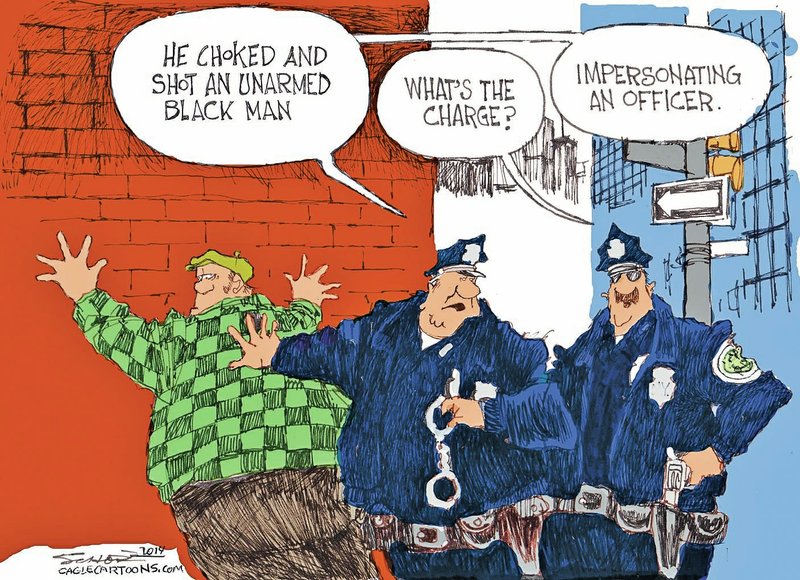The United States didn't have a law to keep track of the deaths of people detained or arrested until Dec. 18. That's when the Death in Custody Reporting Act of 2013 was signed into law. The signing was 20 months after that bill was introduced, four months after the death of Eric Garner -- and probably about 50 years after something such as this should have been law.
Critics of police after the deaths of Garner in New York City and Michael Brown in Ferguson, Mo., might say this database will track something already glaringly obvious. On the other side, police and their supporters might think the database will second guess people who put their lives on the line for the safety of us all. Some will worry these numbers will be a hammer for the U.S. Department of Justice over local law enforcement. All sides will worry the numbers will be cooked, misinterpreted and misapplied -- or ignored.
I think the numbers we'll get will be very meaningful. Let me give my reasons.
The database won't be like scientific studies in the never-ending controversies of the day. Take the debate over climate change now or the old one of whether cigarette smoking causes lung cancer. I'm old enough to remember when the science on cigarettes was hotly contested. Straight-faced but increasingly absurd arguments against any link lasted for decades.
Tracking deaths in custody won't be like that. Climate change or lung cancers among people who smoke are either everywhere or nowhere. Such things can't happen in one place and not happen somewhere else. Findings have to be either accepted or rejected as a whole. So if one portion of the data appears to conflict with the rest, that piece can be seized upon by one side of a debate or the other. The argument can go on far longer than it has to. Now consider different law enforcement agencies -- or any group of humans -- in different towns across the United States. No two will be exactly alike. Some will be better than others. Some will be much, much worse. The differences will tell us something.
I doubt the most steadfast defender of police could make a straight-faced argument that a culture of racism doesn't exist in any department anywhere. Likewise, it would take a pretty strident person to argue all law enforcement agencies are heedless of the lives of minorities.
We are going to find black, and we are going to find white -- and that stark pun is intended. If we don't find both, that will be an alarm bell for me the numbers have been cooked. Uniform results could mean either a whitewash or a tarring.
Then we won't be arguing about whether racism in our police exists. Once police everywhere aren't tarred with the same brush, the departments and the regions of the country we expose will have no defense.
I can't say I'm looking forward to finally getting those numbers. It will be a tally of people killed. It might take years to get a full, indisputable picture. I am waiting to read a book of the dead.
But if I'm still around, I will write in this space on Sunday, Jan. 4, 2016, what that database has to say. I will point out what it says, good or bad, about our local law enforcement agencies. If the information hasn't been released in a usable form yet, I'll write about why. I'll write again about any hard data we get whenever it comes up.
It's a terrible thing to be in a "prove your innocence" situation, as police must feel. It's a far more terrible thing to listen to a debate over where there's "really" a problem when people you know are dead. To me, it seems absurd to argue whether we have a race problem with the administration of justice in a country where blacks have an incarceration rate nearly six times as great as whites. But it has become the nature of our public discourse that you can't just win an argument anymore. You have to batter the opposing point of view down to the ground.
Lives will be lost before either side proves its point on this issue. Surely there must be a better way, but what is it?
I don't know.
Let's have enough respect for the dead and enough doubt in our own self-righteousness to at least keep an honest count. Then let's face the numbers when the sums are done.
DOUG THOMPSON IS A POLITICAL REPORTER AND COLUMNIST FOR NWA MEDIA.
Commentary on 01/04/2015
